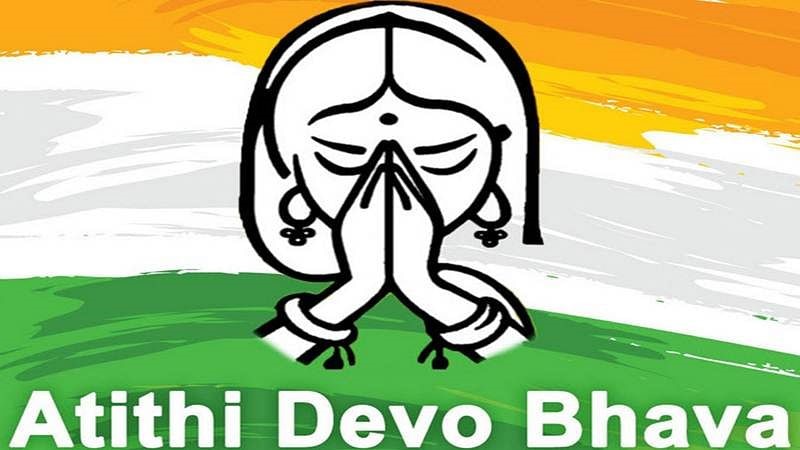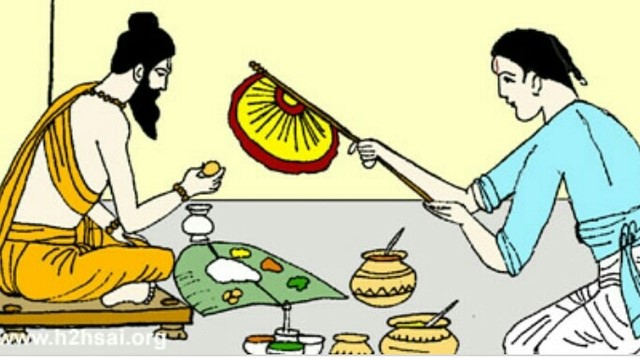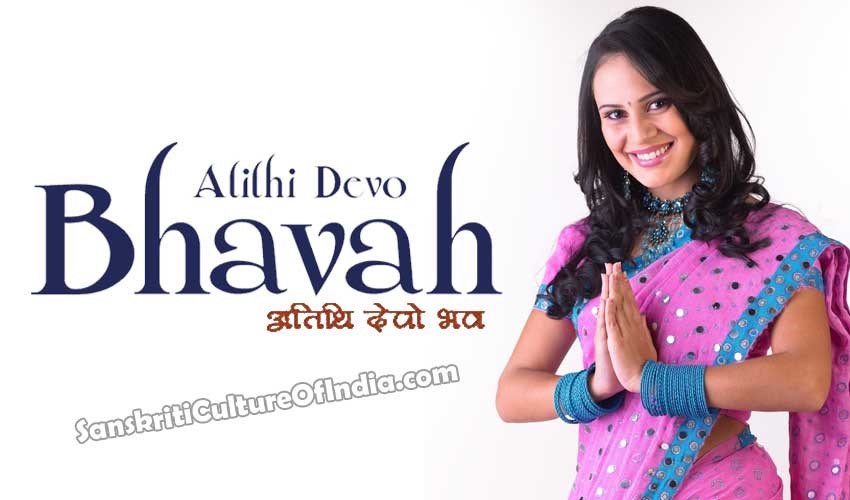
This article is the declaration in the Upanishads “Atithi Devo Bhava” which means, the visitor is God and this saying has encouraged a research and an investigation into traditional scriptures.
It is found that words and vocabulary related to hospitality are found in extensive quotations in the Indian Vedas and Upanishads. These scriptures define the visitor, the guest, the tourist and the traveler, which match international terminology including the one that is found in the World Tourism Organisation. It also states that the visitor (Atithi) is God and the guest (Abhyagati) is the form of Lord Vishnu himself.
These services encompass the whole process from welcoming to seeing off the visitor with a caution of ill-effects of non-compliance in attending to these services. Emerging trends in hospitality has codified some of the traditional services and has stated that the guest deserves to be served with zero defects as the guest experience cannot be undone.
We at the Vatel Hotel & Tourism Business School, Sushant University Gurgaon do our best to instill in our students the values of ancient hospitality traditions, based on which are embedded the modern systems of looking after guests.

Introduction “Atithi Devo Bhava” the motto line of the Department of Tourism, Government of India from the Upanishads 1 that form a part of the ancient Indian scriptures stimulated the author to go in-depth into the traditional scriptures for the study of available words and vocabulary related to the word “hospitality‟, and its concept. It is well-known that hospitality means the reception and entertainment of a guest, a visitor or a stranger with liberality and goodwill. The word “hospitalit” is derived from the word ‘hospice’, the term for a medieval house of rest for travellers and pilgrims. Hospitality is the performance expressed by the host of people or an organization towards the guest and experienced instantaneously by the guest. Therefore the essential part of hospitality is the service provided to the guest and the prime motivation for it in traditional Indian minds lies in the belief that serving the guest is equivalent to serving God.
Hospitality services are in general influenced to a great extent by cultural values and norms of different societies. Culture is the way of living built or shared by a group of people and passed on from one generation to another.
As per Indian scriptures based on which Indian culture emanated, hospitality is a sacred and serene activity, always to be dealt with passion, compassion, sentiment, and concern and is observed as a religious duty towards the visitor/stranger or guest. Hospitality is a way of life for most Indians and is ingrained in their ethos. It is these traditions, beliefs and the unique family structures and values constructed around hospitality which has made India incredible.
According to modern texts, service is a personal performance and is an experience for both the guest and the performer of the service. Therefore, both the guest and the server are intricately involved in the process of hospitality. Because, once the event of the service has taken place, there is no possibility of undoing the experience of the guest. Hence the performer must be careful and perfect without any defects during service operations towards the guest. Philip Kotler described four characteristic qualities of hospitality namely: intangibility, inseparability, variability and perishability. Each of these characteristics is associated with different components of hospitality elements which covers food service, lodging and transportation.
 The composition of the word “Hospitality‟ remained over the centuries though the meaning and significance varied from continent to continent. The traditional concept of hospitality in almost all world regions was socially defined as the spirit, practice of receiving and treating the visitors, guests or strangers in a warm, friendly and generous way without any monetary/reward consideration.
The composition of the word “Hospitality‟ remained over the centuries though the meaning and significance varied from continent to continent. The traditional concept of hospitality in almost all world regions was socially defined as the spirit, practice of receiving and treating the visitors, guests or strangers in a warm, friendly and generous way without any monetary/reward consideration.
The emergence of globalization and the integration of world economy has brought a sea change in the perception of traditional hospitality services and it is viewed in a new way. There has been a paradigm shift from hospitality being a social obligation to a commercial proposition meant for marketing. The economies of the world started thriving leading to an increase marketing opportunities in India acted as a stimulus for Indian hospitality industry (Planning Commission, 2002). Populations have also been becoming more culturally diverse as improved communications, increasing wealth and mobility encouraged people to explore/understand other cultures. This has enhanced the scope of growth in tourism-related occupations, including hotels and restaurants employing 10.8 per cent of workers globally.
 The basic ethos of ancient age old tradition spread over several thousands of years is found to be a resourceful ingredient to be studied and integrated to meet these demands. It is the scenario of commercial hospitality poised to promote a service “with a difference” that led to detailed investigations into the traditional concepts to provide a competitive edge for the hospitality industry in the 21st century to meet the requirement. The ancient Indian scriptures, described reception/hospitality as Atithyam. The etymology of the word Atithyam meaning hospitality required towards a person.
The basic ethos of ancient age old tradition spread over several thousands of years is found to be a resourceful ingredient to be studied and integrated to meet these demands. It is the scenario of commercial hospitality poised to promote a service “with a difference” that led to detailed investigations into the traditional concepts to provide a competitive edge for the hospitality industry in the 21st century to meet the requirement. The ancient Indian scriptures, described reception/hospitality as Atithyam. The etymology of the word Atithyam meaning hospitality required towards a person.
Therefore, Atithi (the visitor) is a tourist who does not stay permanently at a single place, but at the same time, travels to visit person/places without any regard to date, time or week. Such a travelling visitor is to be welcomed and received with full honours as a guest signifying him as God himself.

Kulmohan Singh
Vatel Hotel & Tourism Business School,
Sushant university,
Gurgaon
